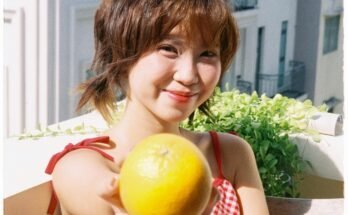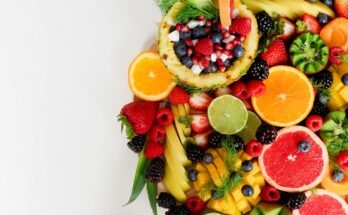Simplified Nutrition — History of a Better Path to Health nutrition is often thought of as this sprawling web of diets, supplements and food choices but at the heart it possesses profound yet simple truths that have the capacity to change our health and in some cases lives. How to Decode the Secrets of Nutrition Not just what we eat; most important is how we create a balanced diet plan for our body. This article provides an overview of some of the most essential pieces that nutrition is built upon.
1. Retail is losing relevance / grocery to meal kitsProcessed foods vs. Whole Foods
Whole foods are one of the biggest secrets for nutrition. These are minimally processed foods and with no artificial ingredients. And while I urge everyone to eat smaller portions, the majority of our diet should be local fruits and vegetables — whole grains and nuts and seeds, with just a little lean protein. These foods are good sources of many nutrients (such as dietary fiber, antioxidants and phytochemicals) not only for health, but also to lower risk of chronic disease.
Hint: A colorful plate is what you should be aiming at. While the appeal of variety is more visual, it also serve as a nutritional veil.
2. Balance and Moderation
There needs to be some sort of balance into your nutrition, period. It´s not just removing one or two elements it is reducing to soemthing that we can sustain and lastly but most importantly how do we get back to enjoy living with various ranges of nourishing?. Eating in moderation refers to enjoy the occasional treat without feeling guilty and eating nutrient-dense most of the time.
Pro Tip: Employ the “plate method”—filling half your plate with a vegetable, one quarter piece by protein, and the last part of it (quarter)with whole grains. This illustrative tips to help keep the die balanced for you
3. Mindful Eating
When we live our busy lives, eating becomes almost automatic. Mindful eating asks us to slow down and enjoy our food. By listening not just to what our bodies ask for, but also how much they actually require and how foods taste independent of the associations our brain offers, we have an opportunity to skew towards healthier choices and support better digestion.
Hint: Minimize distractions for mealtimes. Charging your phone, shutting down TV, and focusing where your food goes.
4. Hydration is Key
Nutrition is mentioned for a few seconds, but water is barely referenced, despite the fact it underpins so much of your health. Good water intake aids in digestion, nutrient absorption and mental clarity. Although that rule is a good starting point, daily fluid needs really depend on activity level as well as climate and health status.
Tip: By carrying a water bottle around with you throughout the day, you may be more likely to remember to drink-and feel free to infuse it with lemon or cucumber slices (HIIT Academy).
5. Listen to Your Body
Nutrition is individual, and everyone must be given their own advice. Your body need is determined by factors like age, gender, activity level, and if you have any health conditions. Honing in on what your body is telling you helps to densify food choices and individualize nutrition further.
Try this: Keep a food journal to see how your body or mind reacts to different foods. This can help you learn which foods fuel your body, versus those that drag you down.
Gut Health and Its Function Introduced recent studies that have contributed to the establishment of the gut immigration. Adequate nutritional supplementation should include the consumption of prebiotic and probiotic foods since there unbalance the gut environment.
Suggestion: Have a combination of different types of food including a lot of fiber so as to help the gut, and think of a regular diet containing fermented foods.
Sustainable Eating Pattern Nutrition is not solely for the benefit of the individual, it is also for the benefit of the environment and all its inhabitants. Thus, choosing foods is not only about personal benefits but about future generation benefits – sustainable eating. That is, it implies use of locally produced and in season foods, cutting down on meat and avoiding food wastage.
Suggestion: Instead of buying imported foods, buy in season locally grown foods so that you are able to patronise local farmers and also eat foods in the peak season when the food is fresh and most tasty.
Conclusion
There are no hard and fast nutrition rules, which is good in a way because there is a greater grasp of one’s body and its tissues. Instead, they talked about whole foods, the principle of integrality and moderation, and being attentive to the body rather than adopting a restrictive diet. Importantly, realizing optimum nutrition is a process rather than an event and so it is on you, so know what works for you. Enjoy the process because nutrition, and more importantly the food you consume every day, has the potential to change your life for the better.


